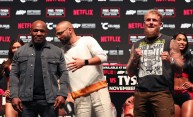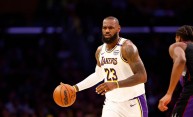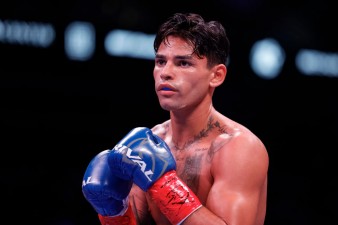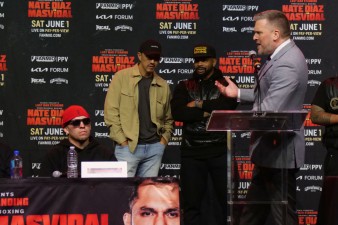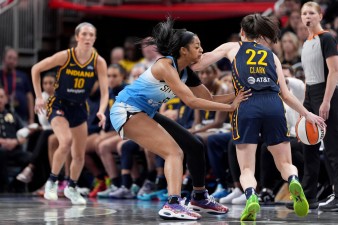Flamboyant billionaire Mark Cuban on Wednesday was cleared by a Texas jury of using a private tip to avoid a big loss on his 2004 sale of Internet company shares, in a stinging rebuke for the U.S. government which had accused him of insider trading.
Cuban, 55, the owner of the Dallas Mavericks basketball team, lashed out at theU.S. government and lead prosecutor Jan Folena after the verdict, saying the government had tried to bully him.
"Jan Folena, who represents the United States of America, stood up there and lied," an angry Cuban told reporters after the nine-member jury read its decision.
"I'm the luckiest guy in the world and I'm glad I could stand up to them," he said.
Estimated by Forbes magazine to have a net worth of $2.5 billion, Cuban was accused by the U.S. Securities and Exchange Commission of trading on non-public information when he sold his 600,000 shares in Internet search companyMamma.com - worth $7.9 million - and avoided a $750,000 loss.
The SEC brought the civil lawsuit against Cuban in November 2008. A judge dismissed the suit in 2009 but an appeals court revived the case the following year.
Cuban refused to settle the case and went to trial, even though he said on Wednesday that he had spent more on fees for lawyers than the possible fines for admitting to insider trading. He could have faced up to $2 million in fines, his lawyers said.
"It's personal. You take all these years of my life, it's personal," Cuban said.
SEC lawyers rushed from the court after the verdict without making extensive comments. The agency later issued a short statement saying it was disappointed by the outcome.
"We respect the jury's decision," SEC spokesman John Nester said in Washington.
"While the verdict in this particular case is not the one we sought, it will not deter us from bringing and trying cases where we believe defendants have violated the federal securities laws."
The decision in the Cuban case was a blow to the SEC, which was still riding high after it won a blockbuster case against former Goldman Sachs vice presidentFabrice Tourre this summer.
The SEC argued that Tourre had committed fraud in a failed mortgage securities deal during the 2008-2009 financial crisis. In August, a jury agreed and found Tourre liable on six of seven counts.
At the two-week trial of Cuban, prosecutors argued that he sold his stake soon after learning from Mamma.com Chief Executive Guy Faure that the Montreal-based company was planning a private placement that would dilute his holdings in the company.
Mamma.com shares dropped 9.3 percent on the morning after the offering was announced. By that time, Cuban had already sold his shares.
Cuban, who rose to prominence before the dot-com crash by selling his company, Broadcast.com, in 1999 to Yahoo Inc for $5.7 billion, said he did nothing wrong when he sold his 6.3 percent stake in Mamma.com.
Cuban testified during the two-week trial that there were many reasons for selling his shares, including the private placement and Mamma.com's possible association with a known stock swindler.
His lawyers suggested that word of the private placement had leaked into the market because potential investors were being contacted to participate in the private placement.
"This case should have never been brought to trial," Cuban's defense lawyer Stephen Best said after the verdict on Wednesday in federal court in Dallas.
In addition to his ownership of a professional basketball team, Cuban is one of the stars of the popular television show "Shark Tank" which features financiers analyzing and deciding whether to invest in new products presented by entrepreneurs.
"I know I'm a target," Cuban said of his high profile. "I recognize that when I do things people pay attention."
© Thomson Reuters. All Rights Reserved
